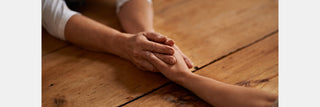Imagine stepping into a library in 2025—not a hushed, musty room filled with books, but a neon-lit hall of aesthetic “reading pods,” "selfie mirrors", and a curated “For You” shelf algorithmically tailored to your mood and trending hashtags. Welcome to the Instagram Library—where knowledge meets content, and attention spans are the new currency. Sounds absurd? Maybe. But satire often reflects truth in exaggerated mirrors. Let’s take a psychological stroll through this imagined world—and what it says about our evolving relationship with information, focus, and the very idea of learning.
Shelfies Over Stories: The Visual Hijack
In the Instagram Library, every book cover is redesigned for visual impact. Think holographic titles, colour-coded spines for aesthetic appeal, and a section called Books That Match Your Outfit Today. The actual content? Irrelevant, unless it’s quote-worthy or makes a good caption. Psychological Insight: We’re hardwired to respond to visuals. The picture superiority effect shows that people remember images better than text. Instagram thrives on this—its dopamine loop is fed by likes on images, not ideas. So when aesthetics override substance, our cognitive engagement with the material becomes shallow. The book becomes a prop, not a portal.
Swipe Culture vs. Deep Focus
The reading pods come with “swipe-to-read” tablets, where books are broken into 15-second clips. If a book doesn’t hook you in the first two screens, you’re prompted to swipe to the next. Think of it as Tinder for texts—only with footnotes. Psychological Insight: Studies in cognitive psychology and neuroscience have shown that constant digital multitasking reduces our capacity for deep work—a term coined by Cal Newport to describe the ability to focus without distraction on cognitively demanding tasks. Instagram’s structure encourages rapid scanning and instant gratification, which rewires the brain to avoid prolonged focus or abstract thinking.
Libraries were once training grounds for patience, curiosity, and reflective thought. Instagram Libraries? They favour immediacy over introspection.
Learning as Performance: The Rise of Intellectual Flexing
There’s a “Reading in Public” zone with ring lights and trending soundtracks. Here, users film themselves dramatically flipping through a book, not necessarily reading it, but appearing to engage intellectually. Viral reels feature hashtags like #BookTokSpill, #ShelfGoals, and #WokeWisdom.
Psychological Insight: This taps into the concept of impression management—a theory by sociologist Erving Goffman that we craft our identities based on how we want to be perceived. When learning becomes performance, the goal shifts from personal growth to external validation. We learn not to understand, but to be seen learning. And it’s not just about ego—it’s about identity. In 2025, your reading list is your resume, your aesthetic, your brand.
Infinite Scroll vs. Finite Knowledge
Traditional libraries have walls. They limit the scope, and in doing so, give form to depth. But the Instagram Library is a wormhole—scrolling never ends. You're lured into a spiral: from a post on ancient Greek philosophy to cat memes to a live feed from someone reviewing a book they haven’t read.
Psychological Insight: Information overload and decision fatigue set in when the brain is presented with too many options. Our working memory (which handles temporary storage and manipulation of information) gets overwhelmed, reducing comprehension and retention. In the age of infinite content, the brain doesn’t learn more—it learns less, but with more noise.
The Quiet Crisis: The Disappearance of Boredom
In the old library, boredom was part of the process. Waiting for your turn at the checkout, flipping through indexes, sitting with a thought. In the Instagram Library, boredom is outlawed. If you're not stimulated, the app will generate personalised “Suggested Distractions.”
Psychological Insight: Boredom isn’t bad—it’s brain space. Research shows that boredom fosters creativity, introspection, and problem-solving. When we eliminate boredom through constant stimulation, we rob ourselves of the cognitive pause that allows true understanding to form. Libraries once gave us that pause. Social media fills it with noise.
So, What Are We Actually Losing?
This article isn’t anti-Instagram or anti-technology. Social platforms have democratized access, connected learners, and sparked movements. But in this satirical vision, we must ask: Are we trading depth for decoration, reflection for reaction, understanding for aesthetic? Are we learning to learn—or learning to perform?
A Way Forward: Marrying the Old and New
The future doesn’t have to be a binary between old-school libraries and algorithm-driven feeds. Imagine a hybrid: physical libraries with digital discovery tools, quiet rooms with immersive tech, and curated digital book clubs guided by actual librarians.
Let Instagram run a section, not the entire library. Let it inspire interest, but not dictate depth. Because in the end, learning is not about how we look engaging—but how deeply we’re willing to engage. In a world of scrolls, let’s not forget the power of stillness. Even if it doesn’t trend.
















